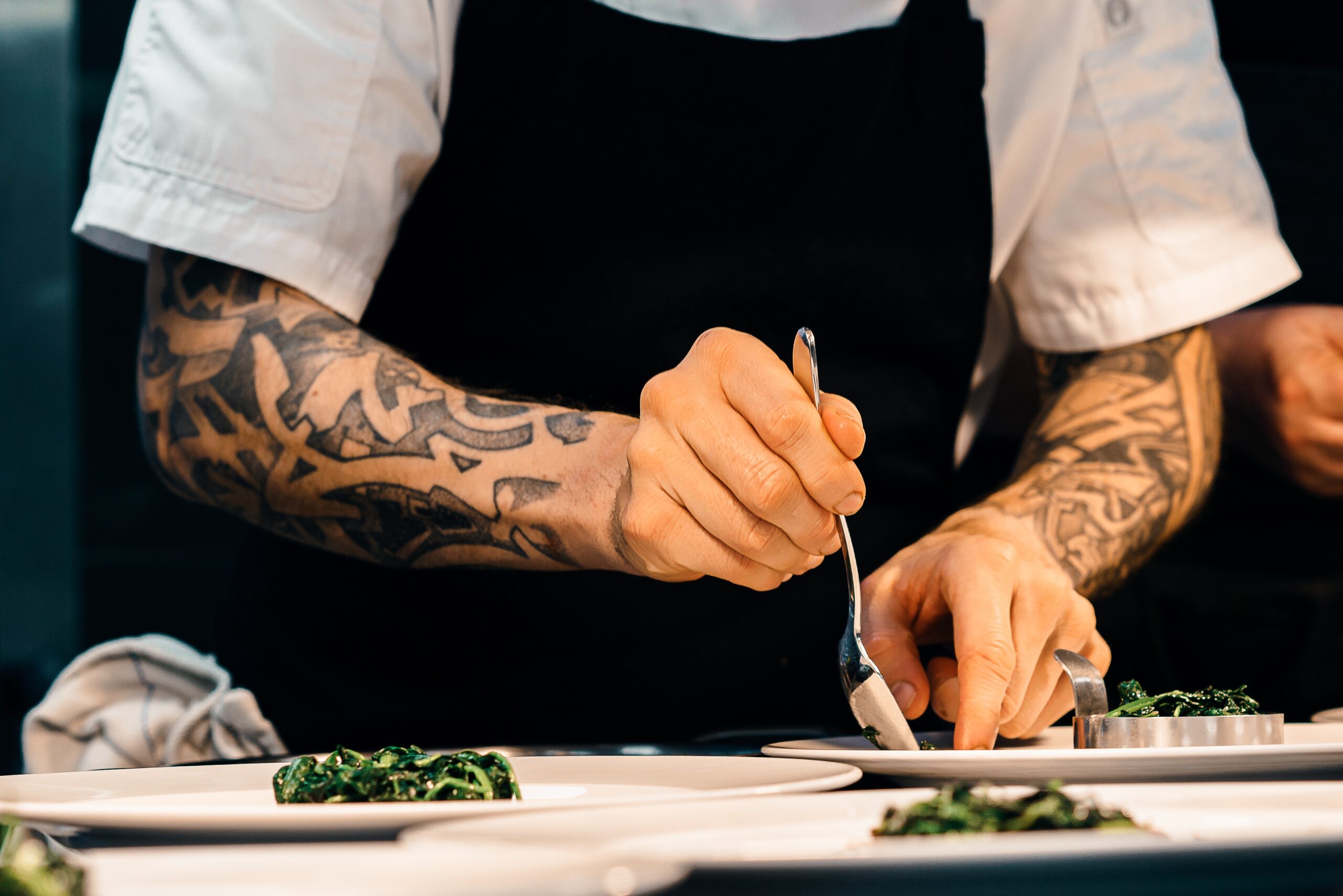The world of culinary arts is filled with vibrant colors, delicious aromas, and sizzling sounds, but it’s also a physically demanding job that requires chefs and kitchen staff to be on their feet for hours on end. With the heat generated from stoves, ovens, and grills, wearing comfortable clothing is a must in the kitchen. Many chefs opt for traditional chef jackets and pants, but what about shorts? Can you wear shorts in a kitchen?
In the vast majority of commercial kitchens wearing shorts is prohibited due to safety concerns. Generally, the main safety concerns with wearing shorts in a kitchen involve burns from hot liquids or surfaces and cuts from sharp objects.

How can I stay cool in a kitchen without wearing shorts?
As shorts are not allowed there are still several strategies you can use to stay cool and comfortable while working. Here are some tips:
- Wear lightweight and breathable clothing: Choose clothing made from natural fibers such as cotton or linen, as these materials allow for better air circulation and can help keep you cooler.
- Wear moisture-wicking clothing: Moisture-wicking clothing is designed to draw sweat away from your body, which can help keep you dry and comfortable. Look for clothing made from materials such as polyester or nylon.
- Use a cooling vest: Cooling vests are designed to help regulate your body temperature by using cooling technology. These vests can be worn under your work clothes and can help keep you comfortable in hot environments.
- Stay hydrated: Make sure to drink plenty of water throughout your shift to stay hydrated and help regulate your body temperature.
- Take breaks in a cool area: If possible, take breaks in a cool area of the kitchen or outside to help regulate your body temperature and avoid overheating.
- Use a fan or air conditioning: If your kitchen has a fan or air conditioning, use these to help circulate air and keep the temperature down.
- Avoid heavy meals: Eating heavy meals can increase your body temperature and make you feel hotter. Stick to lighter meals and snacks throughout your shift.
By following these tips, you can stay cool and comfortable in the kitchen without needing to wear shorts. It’s important to prioritize your comfort and safety while working, and taking steps to regulate your body temperature can help you perform your job to the best of your ability.

Can I wear sandals or flip-flops with kitchen shorts?
In commercial kitchens wearing sandals or flip-flops is not allowed. This is because open-toed shoes do not provide adequate protection for your feet from spills, hot liquids, sharp objects, and heavy items that can fall on your toes.
In addition to safety concerns, wearing sandals or flip-flops can also violate health codes in some areas, as they can allow dirt and debris to accumulate on your feet and be tracked into food preparation areas.
Many commercial kitchens will require employees safety shoes. The main advantages of safety shoes are:
- Protection from falling objects: Safety shoes typically feature reinforced toe caps that provide protection against falling objects. This can be especially important in industries such as construction, manufacturing, and warehousing, where heavy objects are commonly moved around.
- Slip resistance: Many safety shoes are designed with slip-resistant soles, which can help prevent slips and falls on wet or oily surfaces. This is particularly important in workplaces where spills and wet conditions are common, such as kitchens or factories.
- Electrical hazard protection: Some safety shoes are designed to protect against electrical hazards. These shoes have non-conductive soles and may be made from materials that do not conduct electricity, reducing the risk of electric shock.
- Comfort and support: Safety shoes are often designed with comfort and support in mind. They may have cushioned insoles, arch support, and other features that help reduce foot fatigue and improve overall comfort during long work shifts.
- Compliance with safety regulations: Many workplaces require employees to wear safety shoes to comply with safety regulations and standards. Wearing safety shoes can help ensure that you are following the rules and staying safe on the job.
Overall, safety shoes provide important protection and support for workers in hazardous industries. By investing in a high-quality pair of safety shoes, you can help reduce the risk of accidents and injuries on the job, and ensure that you are able to work safely and comfortably.

Comments are closed